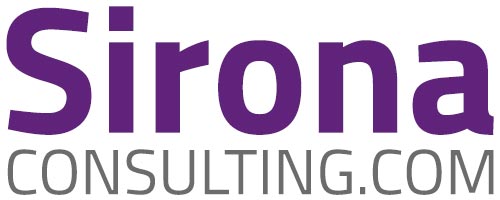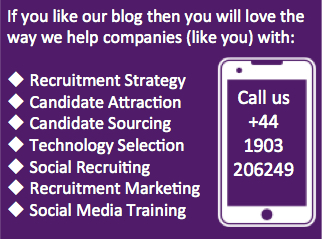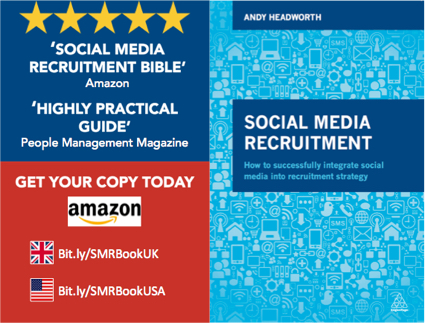Is This What The Recruiter Of Tomorrow Will Look Like?
If you were hiring a new recruiter next week, what skills would you want them to have? This is not a trick question at all - if I asked the same question just two years ago the answer would have been vastly different to today, in my opinion.
Firstly, let me just cover off all the stuck-in the-mud ‘traditional’ recruiters who will read this post and immediately say that nothing in recruitment has changed, social media hasn’t changed anything in recruitment and the world hasn’t gone mobile (even though said recruiters use them every day!) To those, I recommend going off and reading something from Christopher Columbus, where you will be surprised to hear the world isn’t flat!
For the enlightened, you will have all realised that the world of work has been quickly evolving over the last few years. Without going into huge amounts of detail, we have seen social media, mobile, skill shortages (globally), fast moving technology advancements, candidate empowerment and of course financial challenges have huge impacts on recruitment strategies and processes. Surely it would then be naive to think that the roles of recruiters have therefore stayed the same?
When I was asked to present a subject called The Future of Recruitment down in New Zealand, it got me thinking about the role of the recruiter and the different skills they now need to have in this changing business world. Not everyone will agree with me on some of these, but here are the skills that I believe are going to be essential for recruiters to have in the (not so distant) future:
1. Sales and marketing skills. Recruitment is sales and marketing - it always has been. Don’t be under any illusion here you should be selling and marketing ALL THE TIME as a recruiter.First, as a recruiter talking to clients (existing and new) you are selling/marketing yourself, your brand and (hopefully) prospective candidates; secondly, you are then selling/marketing job opportunities to candidates (again, hopefully); thirdly, you are marketing your brand, company and yourself via your website, job board advertising and every time you post an update on LinkedIn, Twitter, Facebook, Google plus etc. Now hopefully this is a skill that all recruiters have in abundance right now - although I am somehow not entirely convince about this!
2. Candidate networks building skills. I have resisted to use the ‘trendy’ term candidate communities/pool because I think that just confuses people as to what they really are, or really should be. I like to describe it better as specialist candidate networks, focused around the skills that you (as a recruiter) typically recruit for.
These are the future lifeblood of a recruiter (and have also been the main secret behind top billing recruiters), and as above should be being done already. When you specialise in a sector/industry you need to know (have access to) all the candidates that have the skills you want. It doesn’t matter if they are currently working and not looking for a move now, as they will one day. You need to be known as the go-to recruiter in your industry/sector. if you are still unsure if you are doing this, ask yourself if you can answer yes to these ten defining points here.
3. Candidate sourcing skills. More and more companies are learning how to do direct resourcing more effectively. They are taking the ‘low-hanging fruit’ away from you and are placing adverts on job boards, LinkedIn, career sites and social networks directly. In many instances clients have told me they aim to recruit 80% (or higher) of their roles directly either now or in the near future, themselves. Where does that leave recruiters?
It means that they need to be able to actually add real value to their clients, and either find candidates in places that the clients won’t look or use skills that the clients don’t possess. Just searching on LinkedIn won’t cut it anymore - don’t you think the clients don’t know that’s where many of your candidates come from? Also don’t be under any illusions that LinkedIn are not selling that fact to them directly! You need to learn new skills and source candidates in different places - different social networks, develop niche referral channels, and find the places where the candidates actually are.
4. Social media skills. Yes you may well be on LinkedIn, but are you using it well enough? This may shock you(!) to know that many candidates are not on LinkedIn and (worse), many with desired skills are starting to remove their profiles from the network, because of being hassled by recruiters! How many other social networks are there where these candidates can go? How many of these are you active on? I thought so!
Now I am certainly not saying you have to be on all the social networks out there, that would be impossible. But you must be on the social networks where your target candidates are.
You have to take the time to find this out, and you must then get active on them. And I don’t mean then just posting jobs like a muppet, you should be connecting with them, sharing insights and content (below) and developing relationships with that community. Like no.2 above, you become the go-to person in that community because you have built trust and an industry reputation.
5. Content production skills. Let’s me be very clear here - I am not saying you have to suddenly become a prolific blogger overnight. That is not going to happen. What I am saying is that you, as a a specialist in your sector/industry, should be sharing content that is relevant to your specific audience. Now this may well be as simple as just sharing other people’s good blog posts, articles, videos etc via the social channels you use. You can get some good pointers here - what do recruiters tweet, post and share - that might help you. Technology can help you manage this (and your time) very effectively. Tools like Buffer, Feedly and Hootsuite will really help you manage this and help you automate some of the process.
6. Contractor management skills. With the need for skills becoming critical in many areas, companies are turning more and more to hiring contractors, interims and temporary workers. If you are a recruiter that has not before recruited and managed these types of candidates then these skills need to be learnt quickly. I bet you have already been asked by your clients for contractors where permanent skills are just not available quickly enough. Sometime managing contractor/interims and temporary workers is really like trying to herd cats - many never do what you expect them to! I know this from many years of managing these areas in my recruitment past! If you work for a big agency or an RPO, then you will no doubt pass these ‘temp roles’ to your colleagues, but if you are an SME or even an in-house recruiter, then these may well be new challenges for you. Take the time to get advice from experienced recruiters and don’t ever be afraid to ask for help.
7. Keep up to date with technologies. Obviously I don’t think for one second we will all be using Google Glass in recruiting in the near future - but one day I am sure! Seriously though, technology is moving so fast, you have to find some way of keeping up with it. Why? Because it can help you in your job. It may be a new iPhone/Android mobile app, new sourcing technology, content aggregating platform, recruitment reporting tool, new recruitment platform, candidate management tool or something else equally exciting. This isn’t about being nerdy, it is about being clever. Why not adopt technologies and tools that will help you do your job better, find more candidates and build your future candidate pipelines?
Use tools like Feedly, Flipboard, Twitter and Pulse to keep you up to date with technologies. The more you read, the more you will find out what is useful and can be applied to recruiting.
I hope I have stimulated your thinking for other skills you will need to have as a recruiter. Will you need all of them? Well I guess that depends on your role and where you work. But I do believe that between you and your fellow recruitment team colleagues (in-house or agency) you will need to cover them all off!

-
https://www.sitalruparelia.com Sital
-
/sironaconsult Andy Headworth
-
https://www.interimity.com julia briggs
-
https://www.twitter.com/thesquirrel_za Carl Anderson
-
Jacob Sten Madsen
-
Niklas Lerner Instacruit










